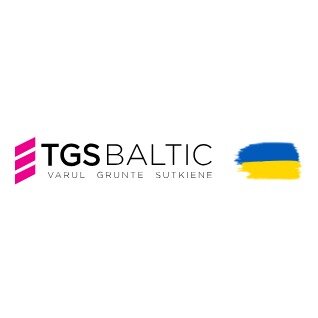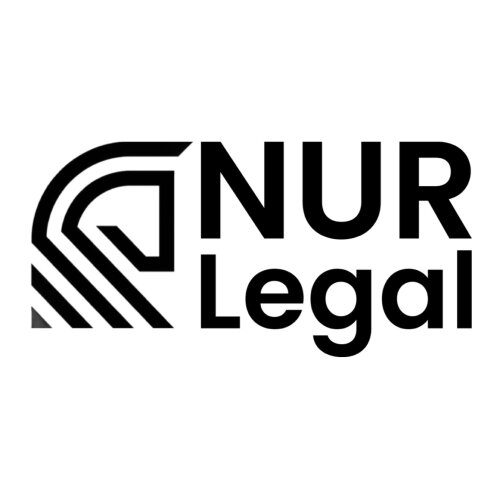Best Structured Finance Lawyers in Estonia
Share your needs with us, get contacted by law firms.
Free. Takes 2 min.
Or refine your search by selecting a city:
List of the best lawyers in Estonia
About Structured Finance Law in Estonia
Structured finance in Estonia refers to complex financing arrangements that are designed to suit the specific needs of businesses and investors. These financial instruments often combine various assets, receivables, or cash flows into a single investment product. Common structures include asset-backed securities, securitization of loans or leases, and collateralized debt obligations. In Estonia, structured finance is used by large corporations, financial institutions, and occasionally government entities to access capital markets, manage risks, or optimize balance sheets. The development of structured finance law in Estonia has closely followed European Union regulations and international best practices, ensuring the local framework is modern and robust.
Why You May Need a Lawyer
Engaging in structured finance transactions can be legally and financially complex. Here are common scenarios where legal assistance is essential:
- Structuring deals involving multiple parties, assets, or jurisdictions
- Drafting and reviewing transaction documents to ensure compliance with local and EU regulations
- Negotiating terms between lenders, investors, and borrowers
- Ensuring that securitization vehicles or special purpose entities are duly formed and compliant
- Assessing tax consequences and optimizing the overall legal structure
- Resolving disputes related to structured finance transactions
- Managing regulatory approval and disclosure requirements
Having a qualified lawyer by your side helps you mitigate legal risks, achieve favorable terms, and ensure the transaction aligns with your business goals and legal obligations.
Local Laws Overview
Structured finance activities in Estonia are governed by a combination of national and EU legislation. Key aspects include:
- Financial Supervision: The Estonian Financial Supervision Authority oversees firms involved in structured finance, ensuring market integrity and consumer protection.
- Securitization Rules: Estonia follows the EU Securitization Regulation, which sets requirements for risk retention, disclosure, and transparency.
- Contract Law: The Estonian Law of Obligations Act applies to agreements in structured finance, providing guidance on enforceability and parties' rights.
- Bankruptcy and Insolvency Law: Structured finance transactions must account for rules on insolvency to protect investors and creditors.
- Taxation: The Estonian Income Tax Act can affect the taxation of securitizations and structured loans, including the treatment of income and deductions.
- Data Protection: The processing of financial data must comply with EU General Data Protection Regulation and Estonian Personal Data Protection Act.
Given the complexity and interplay of these laws, professional legal advice is recommended.
Frequently Asked Questions
What is securitization and how is it used in Estonia?
Securitization involves pooling various asset-backed receivables, such as loans or leases, and converting them into tradeable securities. In Estonia, it is primarily used by banks and companies to free up capital and enhance liquidity.
Do structured finance transactions in Estonia require regulatory approval?
Certain transactions, especially those involving public offerings or regulated financial institutions, may require approval or notification to the Estonian Financial Supervision Authority.
Are there specific tax advantages to structured finance in Estonia?
Estonia has a unique corporate tax system where retained profits are not taxed. The structure and location of a transaction can significantly impact its tax treatment, so expert advice is crucial.
Can foreign investors participate in structured finance deals in Estonia?
Yes, there are generally no restrictions on foreign participation. However, dealings with non-EU parties may require additional compliance checks.
What legal documents are usually required for a structured finance transaction?
Common documents include offering memoranda, loan agreements, security agreements, trust deeds, and disclosure documents.
How are special purpose vehicles (SPVs) set up in Estonia?
SPVs are usually set up as private limited companies or public limited companies, must be registered in the Estonian Commercial Register, and comply with local corporate and tax laws.
What risks should I consider in a structured finance transaction?
Major risks include credit risk, legal risk, market volatility, and counterparty risk. Due diligence and legal review help mitigate these issues.
Are structured finance products suitable for all investors in Estonia?
These products are typically more suitable for sophisticated investors due to their complexity, risk profile, and regulatory requirements.
How are disputes related to structured finance transactions resolved in Estonia?
Disputes are usually resolved through litigation in Estonian courts or through arbitration, depending on the governing law and dispute resolution clause in the contract.
What are the main regulatory bodies overseeing structured finance in Estonia?
The Estonian Financial Supervision Authority and the Ministry of Finance are the principal regulatory bodies overseeing the sector.
Additional Resources
- Estonian Financial Supervision Authority (Finantsinspektsioon)
- Ministry of Finance of the Republic of Estonia
- Estonian Banking Association
- Estonian Bar Association - list of specialized legal professionals
- European Central Bank - for EU-wide structured finance regulations
- Estonian Commercial Register - information on company and SPV formation
These organizations provide guidance, supervision, and resources for understanding structured finance in Estonia. You can consult their publications or reach out directly for official information.
Next Steps
If you are considering or involved in a structured finance transaction in Estonia, take the following steps:
- Define your objectives and gather all relevant financial and company documents.
- Research potential legal firms or specialists with expertise in structured finance and financial regulation.
- Schedule an initial consultation to discuss your needs, compliance requirements, and possible deal structures.
- Engage a qualified lawyer to prepare, review, and negotiate legal documents.
- Work with your legal team to ensure all regulatory filings and approvals are in place.
- Remain actively involved in due diligence and risk assessment throughout the process.
- Monitor ongoing compliance and legal developments relevant to structured finance in Estonia.
Legal guidance is invaluable in ensuring your structured finance transaction is secure, compliant, and aligned with your business interests.
Lawzana helps you find the best lawyers and law firms in Estonia through a curated and pre-screened list of qualified legal professionals. Our platform offers rankings and detailed profiles of attorneys and law firms, allowing you to compare based on practice areas, including Structured Finance, experience, and client feedback.
Each profile includes a description of the firm's areas of practice, client reviews, team members and partners, year of establishment, spoken languages, office locations, contact information, social media presence, and any published articles or resources. Most firms on our platform speak English and are experienced in both local and international legal matters.
Get a quote from top-rated law firms in Estonia — quickly, securely, and without unnecessary hassle.
Disclaimer:
The information provided on this page is for general informational purposes only and does not constitute legal advice. While we strive to ensure the accuracy and relevance of the content, legal information may change over time, and interpretations of the law can vary. You should always consult with a qualified legal professional for advice specific to your situation.
We disclaim all liability for actions taken or not taken based on the content of this page. If you believe any information is incorrect or outdated, please contact us, and we will review and update it where appropriate.
Browse structured finance law firms by city in Estonia
Refine your search by selecting a city.
















